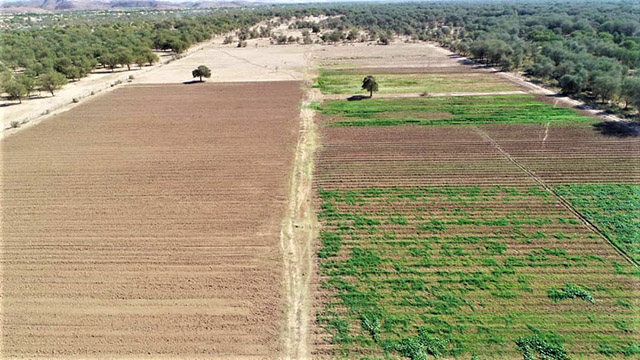
THE city of Windhoek is working on a strategy to ensure water security and the protection of biodiversity and the ecosystem to make the city resilient to climate change, a senior council official has said.
City environmentalist Olavi Makuti told a two-day workshop in Windhoek on Monday that the Integrated Climate Change Strategy and Action Plan focuses on nine areas under three pillars of adaptation, mitigation and cross-cutting issues. Under mitigation, he said, the strategy will address issues of water security and efficiency, biodiversity and ecosystem, human settlement, community health and disaster preparedness.
Makuti gave a presentation on progress in the development of the city's integrated climate change strategy and action plan at the workshop of the Future Resilience for African Cities and Lands (FRACTAL) project, which for Namibia, is being implemented by the municipality in partnership with the University of Namibia.
The project is also being implemented in eight other cities in southern Africa (Lusaka, Gaborone, Maputo, Blantyre, Harare, Durban, Johannesburg and Cape Town) and each city has partnered with local universities.
The aim of the project is to spread scientific knowledge about regional climate responses to human activities and work with decision-makers at city and regional level.
Makuti said under the mitigation, the strategy will focus on sustainable energy and low carbon emission, maximum water usage and the development of a sustainable transport system – modernising municipal buses to attract young people to reduce the number of vehicles on the roads – leading to lower carbon emissions.
The third pillar will address cross-cutting issues in public awareness about climate change and capacity building.
As part of implementation, Makuti said the city will create a climate change desk and a climate change steering committee. The United Nations Inter-governmental Panel on Climate Change assessment report for 2018 confirmed that the gradual warming of the earth over the last three decades is projected at 2 degrees C, leading to serious implications for southern African countries.
The report singled out Namibia and Botswana, as two countries that will face severe water stress as a result of this impact.
The FRACTAL project is funded by the UK government with partners such as the University of Cape Town, UK Meteorological Office and the Stockholm Environment Institute. British high commissioner to Namibia, Kate Airey told the workshop on Monday that her government had committed 3,5 billion pounds to address climate change globally.
She said she had been to the north of Namibia recently and saw how the country is suffering from severe drought. She said recent studies have shown that developing countries will experience 40% water shortages due to climate change.
Article done by: Absalom Shigwedha
Photo Credit: Nampa

